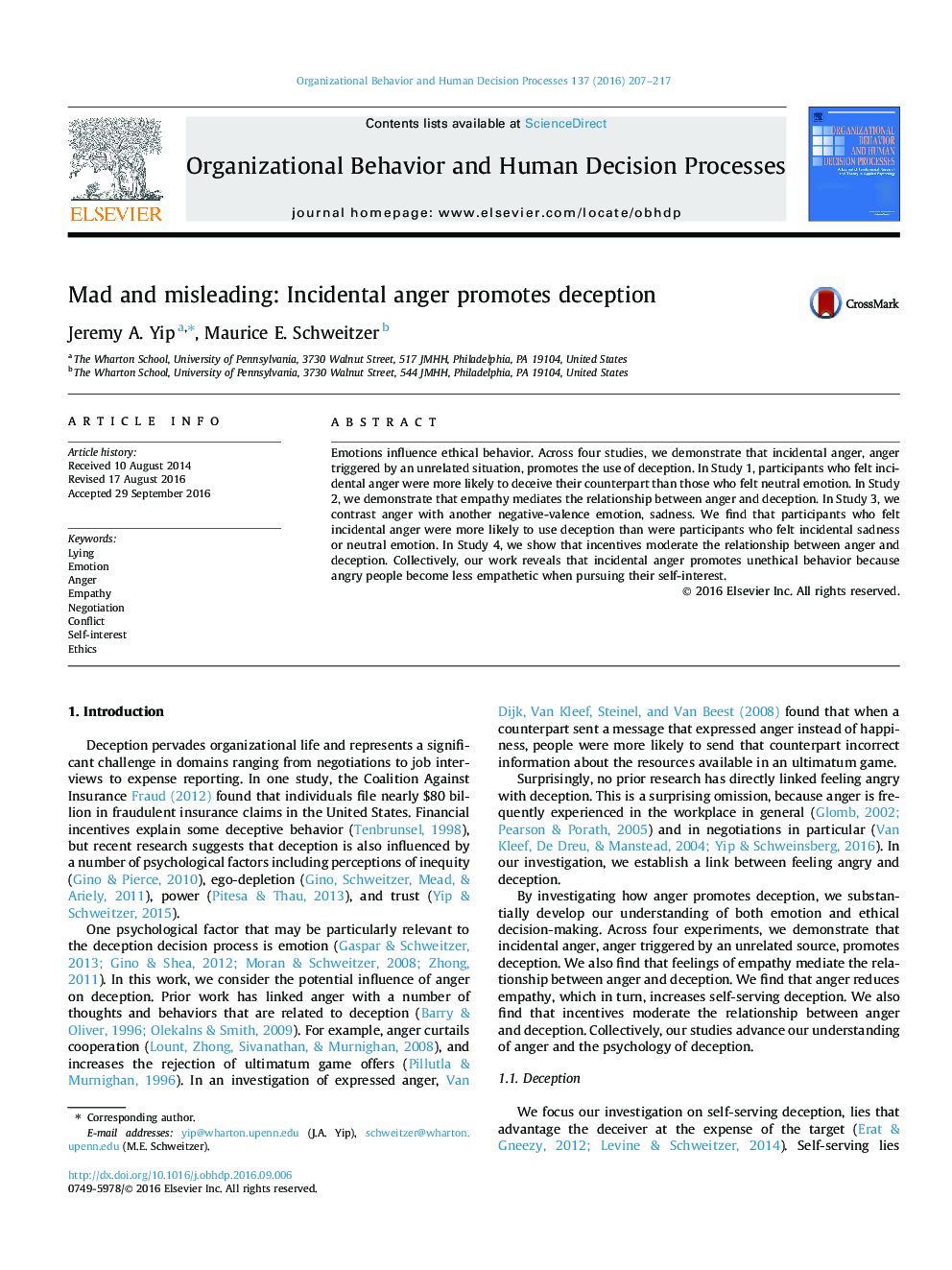| Article ID | Journal | Published Year | Pages | File Type |
|---|---|---|---|---|
| 7248121 | Organizational Behavior and Human Decision Processes | 2016 | 11 Pages |
Abstract
Emotions influence ethical behavior. Across four studies, we demonstrate that incidental anger, anger triggered by an unrelated situation, promotes the use of deception. In Study 1, participants who felt incidental anger were more likely to deceive their counterpart than those who felt neutral emotion. In Study 2, we demonstrate that empathy mediates the relationship between anger and deception. In Study 3, we contrast anger with another negative-valence emotion, sadness. We find that participants who felt incidental anger were more likely to use deception than were participants who felt incidental sadness or neutral emotion. In Study 4, we show that incentives moderate the relationship between anger and deception. Collectively, our work reveals that incidental anger promotes unethical behavior because angry people become less empathetic when pursuing their self-interest.
Related Topics
Social Sciences and Humanities
Business, Management and Accounting
Marketing
Authors
Jeremy A. Yip, Maurice E. Schweitzer,
